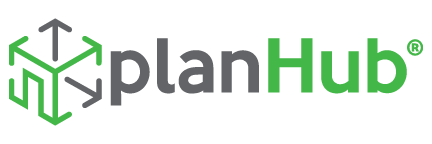Are you struggling to get the most out of your pay-per-click (PPC) campaigns? Fear not! We’ve put together the ultimate guide to PPC strategy development that’ll help you unlock your marketing potential and supercharge your brand’s growth.
From keyword research to landing page optimization, we’ll cover everything you need to know to develop a successful PPC strategy. So buckle up, grab your favorite beverage , and let’s dive in!
What is the Importance of a Well-Developed PPC Strategy?
A well-developed PPC strategy is essential to:
- Maximize your return on investment (ROI)
- Increase conversions and revenue
- Target the right audience at the right time
- Optimize your ad spend efficiently
With a carefully crafted PPC strategy, you can achieve your marketing goals and stay ahead of the competition.
How Do I Conduct Thorough Keyword Research for My PPC Campaigns?
Keyword research is the foundation of any successful PPC strategy. To conduct thorough keyword research, follow these steps:
- Brainstorm initial keywords: Start by listing keywords relevant to your products, services, or industry.
- Use keyword research tools: Tools like Google Ads Keyword Planner, SEMrush, or Ahrefs can help you find related keywords and analyze search volume and competition.
- Analyze competitors’ keywords: Identify the keywords your competitors are targeting to uncover potential opportunities.
- Identify long-tail keywords: Long-tail keywords are more specific and often have lower competition, making them ideal for targeted PPC campaigns.
Remember to regularly update your keyword list and test new keywords to stay ahead of the competition.

Check out our guide on advanced keyword research for hidden gems and organic traffic.
How Do I Create High-Converting Ad Copy for My PPC Campaigns?
High-converting ad copy is crucial to the success of your PPC campaigns. Here are some tips for creating compelling ad copy:
- Focus on your unique selling proposition (USP): Highlight what sets your product or service apart from competitors.
- Use strong calls-to-action (CTAs): Guide users to take the desired action, such as “Buy Now” or “Learn More.”
- Incorporate relevant keywords: Including target keywords in your ad copy can improve ad relevancy and quality score.
- Test different ad variations: Experiment with different headlines, descriptions, and CTAs to find the most effective combination.
Don’t forget to keep your ad copy concise and focused on the user’s needs.
What Role Does Ad Group Structure Play in a Successful PPC Strategy?
An organized ad group structure is essential for efficient campaign management and performance optimization. A well-structured ad group allows you to:
- Segment keywords by theme: Group similar keywords to create more relevant and targeted ads.
- Improve quality score: Relevant ad copy and landing pages can lead to higher quality scores, which can result in lower costs-per-click (CPC) and better ad positions.
- Optimize performance at the ad group level:By analyzing performance data for each ad group, you can identify areas for improvement and allocate your budget more effectively.
To create a successful ad group structure, follow these best practices:
- Use tightly-themed keyword groups: Organize your keywords into small, closely related groups for better targeting and ad relevance.
- Create ad group-specific ad copy: Tailor your ad copy to match the theme of each ad group for improved user experience and higher click-through rates (CTRs).
- Monitor and optimize performance: Regularly review ad group performance and make necessary adjustments to bids, ad copy, and landing pages.
A well-structured ad group is key to a successful PPC strategy, so invest time in organizing and optimizing your campaigns.
Master Google Ads with our ultimate guide to SKAGs.
How Can I Optimize Landing Pages for My PPC Campaigns?
Landing page optimization is crucial for maximizing conversions and improving your PPC campaign performance. Here are some tips to optimize your landing pages:
- Ensure message match: Make sure your landing page content aligns with your ad copy to create a seamless user experience.
- Simplify design and layout: Use a clean, easy-to-navigate design that highlights your CTA and keeps users focused on the desired action.
- Use persuasive headlines and copy: Craft compelling headlines and copy that address users’ needs and drive conversions.
- Test different elements: Experiment with different headlines, images, and CTAs to find the most effective combination.
Remember, a well-optimized landing page can make all the difference in your PPC campaign’s success, so don’t overlook this critical aspect.
Learn more about CRO with our guide on the science of persuasive web design.
How Do I Track and Measure the Performance of My PPC Campaigns?
Tracking and measuring the performance of your PPC campaigns is essential to making data-driven decisions and optimizing your strategy. Here are some key metrics to monitor:
- Click-through rate (CTR): The percentage of users who click on your ad after seeing it. A high CTR indicates effective ad copy and targeting.
- Conversion rate: The percentage of users who complete the desired action after clicking on your ad. A high conversion rate signifies a successful campaign.
- Cost-per-click (CPC): The average amount you pay for each click on your ad. Aim to lower your CPC while maintaining or improving performance.
- Return on ad spend (ROAS): The revenue generated for every dollar spent on your campaign. A high ROAS indicates a successful campaign.
Regularly track these metrics and adjust your strategy accordingly to maximize your PPC campaign performance.

Discover essential analytics for marketing success in our guide on must-know digital metrics.
Q1: How often should I review and adjust my PPC strategy?
A1: You should monitor your PPC campaigns regularly and make adjustments as needed. Review your performance data at least once a week and make optimizations based on your findings.
Q2: How do I determine the optimal budget for my PPC campaigns?
A2: Start by calculating your target cost-per-acquisition (CPA) and determining how many conversions you’d like to achieve. Then, set a budget that
aligns with these goals while keeping in mind that you may need to adjust your budget as you gather more data and optimize your campaigns.
Q3: Can I run PPC campaigns on platforms other than Google Ads?
A3: Absolutely! In addition to Google Ads, there are several other platforms where you can run PPC campaigns, such as Bing Ads, Facebook Ads, LinkedIn Ads, and Twitter Ads. Choose the platform that best aligns with your target audience and business objectives.
Q4: How can I improve the quality score of my ads?
A4: To improve your quality score, focus on increasing your ad relevance, landing page experience, and expected click-through rate (CTR). This can be achieved through keyword optimization, ad copy adjustments, and landing page improvements.
In Conclusion
Developing a winning PPC strategy involves careful planning, ongoing optimization, and a focus on key performance metrics. By following the steps outlined in this guide, you can create effective campaigns that drive meaningful results for your business. Ready to take your digital marketing game to the next level? Subscribe to our newsletter for the latest updates and insights!
Don’t forget to visit d-dat.com for more useful and quality content!







